Jaw Shaping
Zygoma Reduction

Minimizing invasiveness during the bone and muscle separation process, accurately fixing the bone position without affecting skin and muscle elasticity, ensuring stable bone fixation post-surgery to prevent sagging cheeks.
-
SURGERY TIME
1 hour
-
ANESTHESIA
General anesthesia
-
HOSPITALIZATION
1 day
-
STITCH REMOVAL
7 days
-
RETURN TO NORMAL ACTIVITIES
7 days
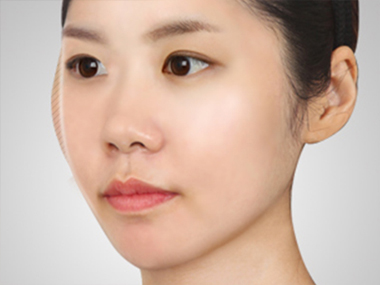
What is Zygoma Reduction Surgery?
It is a surgery to reduce and lower protruding cheekbones.When the cheekbones protrude outward, it can make the face appear rough and older, especially when the cheeks are hollow. In cases of high cheekbones, the surgery involves an L-shaped bone cutting technique and a rotational bone technique to move the cheekbones forward and create a natural contour for the face.
Why Zygoma Reduction Surgery Restores Youthfulness
From the age of 30, skin begins to sag and high cheekbones make the face look older. Even individuals in their 20s with prominent cheekbones appear older. Dr.Kung’s clinic adjusts bone cutting to match the bone structure and skin elasticity for the most natural result. Additionally, a skin-tightening procedure is performed during surgery to prevent sagging cheeks.
Why Zygoma Reduction at Dr.Kung?
-
Zygoma Reduction
Provides a slim, contoured look from the front of the cheeks to the sides of the face.
-
Creates a Natural Cheekbone Contour
Soft, natural lines visible from a 45-degree angle.
-
Personalized Approach
Adjusts the amount of bone removal based on each individual's cheekbone size for the most suitable facial shape.
-
Prevents Sagging Cheeks
Special techniques prevent future sagging of the cheeks.
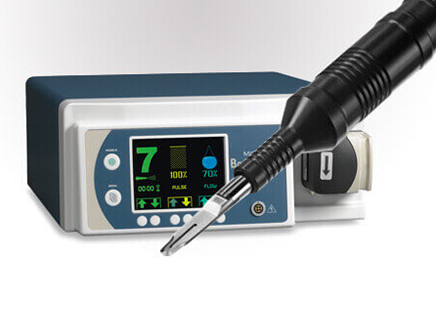
BONE SCALPEL SUPPORTS SAFE AND PRECISE SURGERY
The Bone Scalpel Enhances Precision and Safety in SurgeryThe bone scalpel is an ultrasonic cutting device designed specifically for bone. With minimal vibration (less than 0.5mm), it cuts precisely, only reacting with bone and not with nerves or blood vessels, reducing invasiveness and minimizing bleeding, allowing for faster recovery.
When is Zygoma Reduction Necessary?
-
01.
Prominent cheekbones causing uneven facial contours
-
02.
Face appears too masculine
-
03.
Cheekbones become more prominent due to aging
-
04.
Appearing older than age due to high cheekbones
-
05.
Hollow areas beneath the cheekbones
Before and After Surgery
Zygoma Reduction
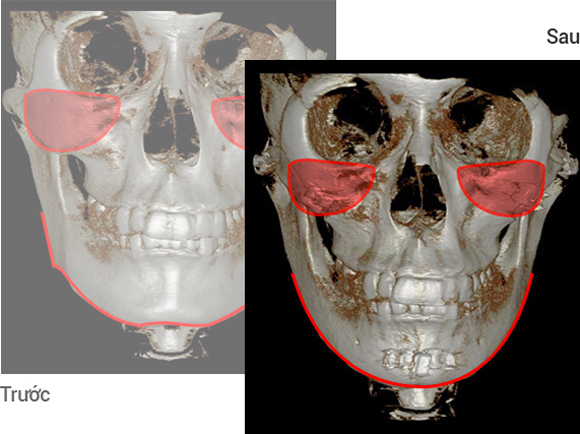
Surgical Procedure
-
01.
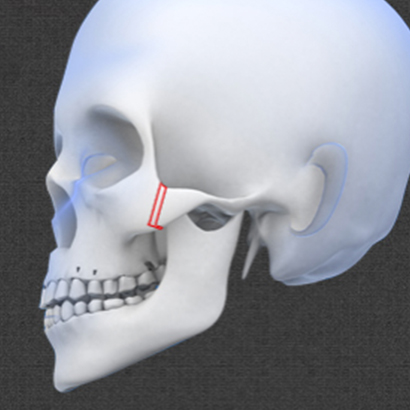
Cut a part of the anterior zygomatic bone in an L-shape through an incision inside the mouth. Adjust the amount of bone removed based on how prominent the bone is to reduce the size of the cheekbone.
-
02.
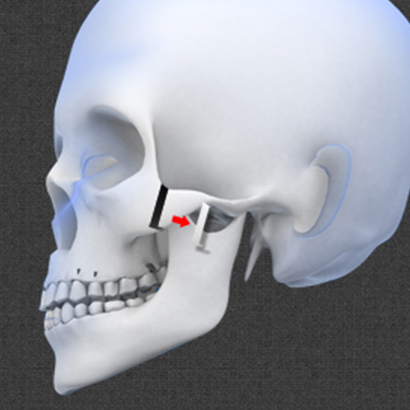
Remove the cut bone section. (Typically, only a certain amount of bone is removed, but if the cheekbones aren't too large, no bone removal is needed.)
-
03.
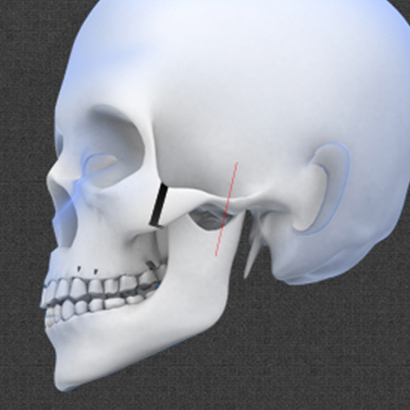
Make an incision at the temple area to access the lateral zygomatic bone.
-
04.
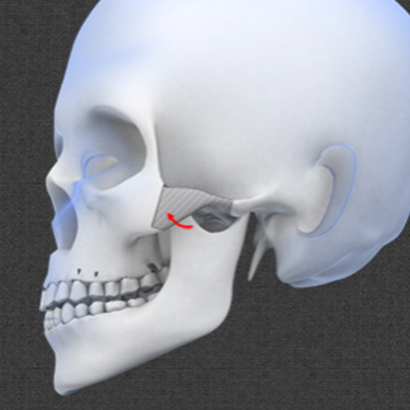
Rotate the separated zygomatic bone inward.
-
05.

Smooth the bone edges and secure it with pins.
Principle of Zygoma Bone Rotation
At Dr.Kung, zygoma surgery uses a bone rotation technique to effectively reduce the size of both the anterior and lateral zygomatic bones, ideal for those with prominent cheekbones, visible from both the front and side views. Depending on the amount of bone removal, range of movement, and rotation degree, the surgery results in balanced contours at different angles, making the surgeon's skill crucial for achieving the best outcome.
-
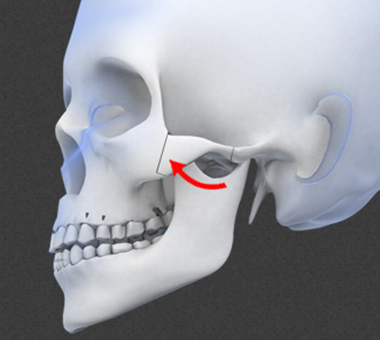 Zygoma Reduction at Dr.Kung Hospital
Zygoma Reduction at Dr.Kung HospitalReduction of both anterior and lateral zygomatic bones
-
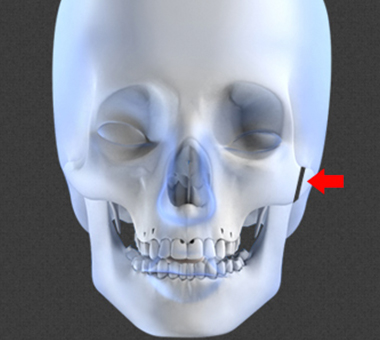 Lateral Zygoma Reduction
Lateral Zygoma ReductionReduction of lateral zygomatic bones
Previously, zygoma reduction involved the "I-shape" bone cutting method, followed by pushing the bone inward. The more the bone was pushed in, the narrower the zygomatic width became, but the reduction was minimal, making this method less commonly used. For optimal results, especially in individuals with flat anterior cheekbones and bulging lateral zygomatic bones, precise analysis and choosing the right surgical method is essential.
Why Dr.Kung's Facial Bone Surgery is Gaining Attention

-
Satisfactory results
Collaboration among specialists
Direct consultation with the operating surgeon -
Absolute safety
Anesthesia experts on standby throughout
the entire surgical and recovery process
Equipped with defibrillators, UPS generators -
Special post-operative care
Special care for swelling and skin treatment
following facial bone surgery
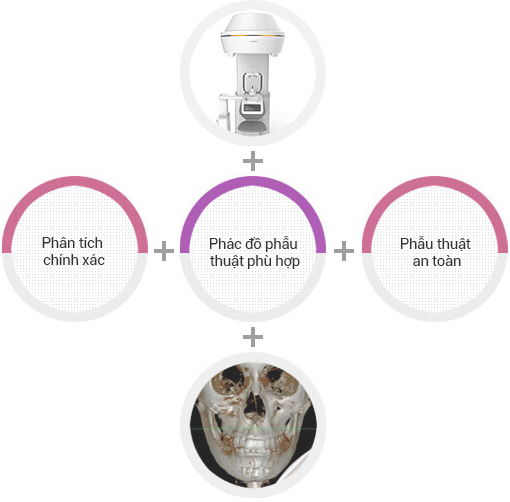
3D CT is a scanning machine that uses X-rays, connected to a computer, capable of measuring internal body structures and providing 3D video imagery. Unlike standard X-ray images, 3D CT offers 3000 times more accuracy, allowing precise analysis of the size, depth, length, and width of the facial bones from any angle. This technology also enables the identification of nerve locations, preventing nerve damage and ensuring a safe surgical process.
